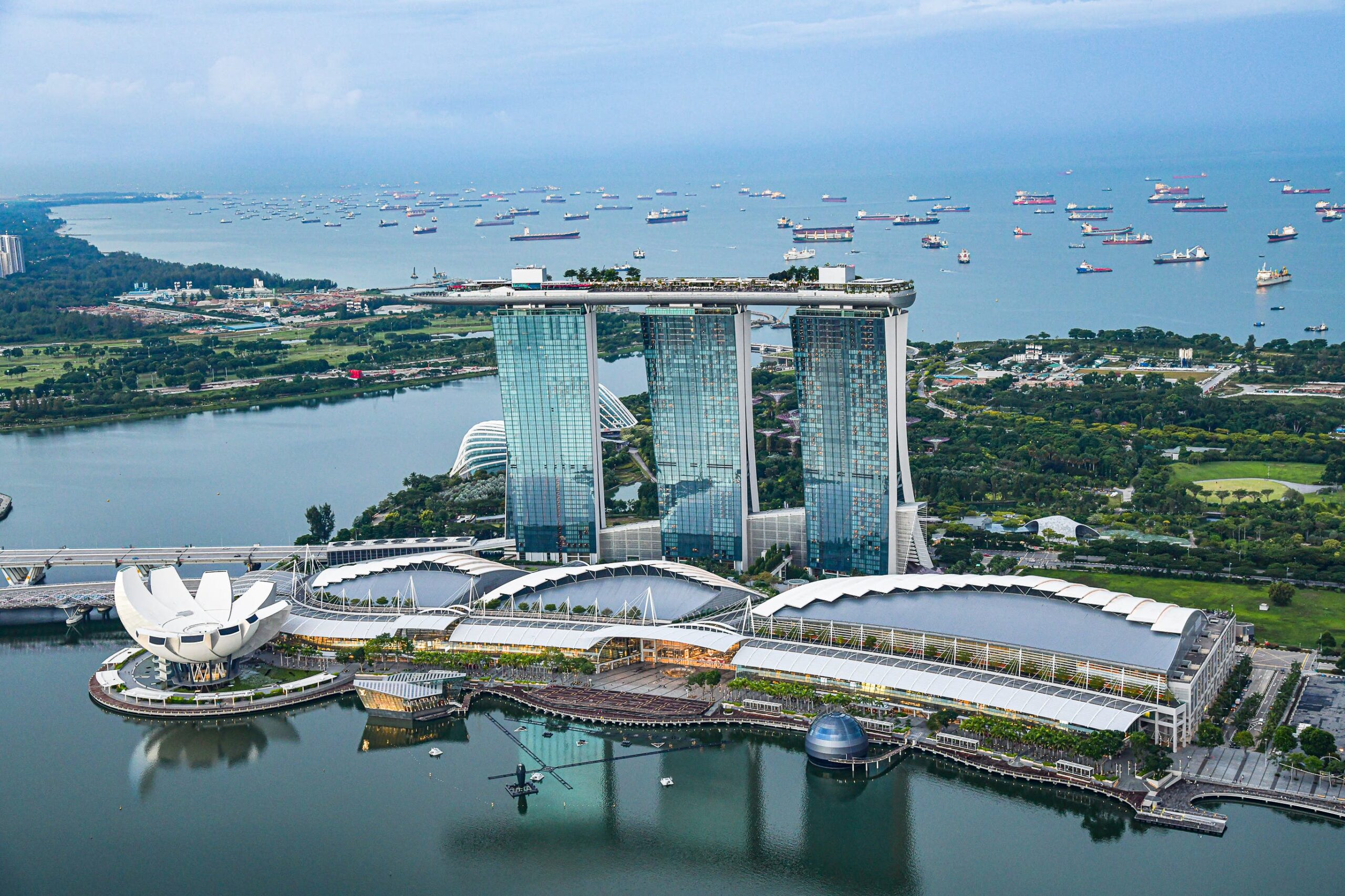Moving to Singapore with family is an exciting journey that promises a wealth of opportunities and experiences. In this comprehensive guide, we’ll provide essential insights and advice for families embarking on this exciting journey, ensuring a successful and enriching experience.
Table of Contents
Reasons to relocate to Singapore
Relocating to Singapore is a decision that offers a multitude of benefits, making it a highly attractive destination for individuals and families alike.
Family-Friendly Environment
The Lion City has long been known for its safe and clean environment, which makes it an ideal place to raise a family. This city possesses a welcoming atmosphere for foreigners as they put an emphasis on community and family values. With parks, recreational activities, and frequent family-oriented events, parents will have numerous opportunities for quality time with your little ones.
Top-Tier Education
Parents always strive to provide their children with the best opportunities for growth, including a nurturing environment and a top-tier education. In this regard, Singapore’s world-class education system, and maintaining a consistent high ranking in global academic assessments. The nation’s educational institutions feature a wide array of academic programs, designed to cater to the needs of both local and international students. Notably, Singapore’s bilingual education policy places a strong emphasis on English, simplifying the assimilation process for expatriate families. Furthermore, the country’s diverse landscape of international schools ensures that students from various national backgrounds have access to quality education.
State-of-the-Art Healthcare Facilities
Singapore’s commitment to ensuring the highest quality of life for its residents is exemplified by its exceptional healthcare system. Known for its efficiency, accessibility, and top-notch quality, Singapore’s public and private hospitals are equipped with state-of-the-art medical technology and staffed by highly skilled professionals. This level of medical excellence offers comfort to both locals and expatriates, who find reassurance in knowing that their family’s health and well-being are in capable hands.
Abundant Job Opportunities
The thriving economy in Singapore positions itself as a global financial center and one of the busiest cities in the world. In an economic hub like Singapore, the job market remains consistently dynamic. Singaporean companies are accustomed to hiring foreign labor, as the nation is a blend of diverse talents from all around the world. The business-friendly environment, low crime rate, and government support for entrepreneurship combine to make Singapore an appealing destination for those seeking career growth in various sectors, including finance, technology, and healthcare.
Quality of Life
]In addition to the benefits above, Singapore offers a high quality of life with a diverse and multicultural society. The city’s robust public transportation system makes it easy to explore the area and enjoy its many offerings. The rich and diverse cuisine, along with the city’s commitment to green spaces and environmental sustainability, enhances the overall living experience.
Expat family moving guide

Legal and Administrative Considerations
When moving to Singapore, expatriates must navigate a range of legal and administrative considerations to ensure a seamless transition. Key aspects include understanding and securing the appropriate visas, such as Employment Passes, Work Permits, and Dependent Passes for family members. When planning your family relocation, consider all documentations, financial affairs, and healthcare requirements beforehand. Expatriates should also acquaint themselves with Singapore’s unique social etiquette, employment regulations, and strict legal framework, which are essential for a successful move to this dynamic and multicultural city-state.
Visas
When moving to Singapore, understanding the visa requirements is a fundamental step in the relocation process. Singapore has a well-defined immigration system that offers various types of visas to cater to different purposes and situations. Here’s an overview of the key visa categories for expatriates moving to Singapore:
- Employment Pass (EP): The Employment Pass is for professionals, managers, executives, and skilled workers. It is typically sponsored by an employer in Singapore. To qualify, you should have a job offer from a Singaporean company. The pass is usually valid for one to two years and is renewable.
- S Pass: The S Pass is for mid-skilled workers. It is also employer-sponsored and granted based on the applicant’s qualifications and job offer. The pass is typically valid for one to two years and is renewable.
- Dependant Pass (DP): If you are an Employment Pass or S Pass holder, your legally married spouse and unmarried children below 21 years old can apply for a Dependant Pass. It allows them to live in Singapore while you work.
- Long-term Visit Pass (LTVP): This pass is for common-law spouses, stepchildren, handicapped children, and other family members who do not qualify for a Dependent Pass. It allows them to stay in Singapore and is typically tied to the validity of the main pass holder’s pass.
- Student Pass: If you plan to study in Singapore, you will need a Student Pass. It is issued by the educational institution you’re enrolled in.
- Entrepreneur Pass (EntrePass): For those looking to start and operate a business in Singapore, the EntrePass is the appropriate visa category. It is subject to certain financial and business requirements.
- Permanent Residency (PR): While not a visa, obtaining Singaporean Permanent Residency is a significant milestone for expatriates. PR status offers many of the same privileges as Singaporean citizens, including the ability to live and work in Singapore without the constraints of specific employment passes.
Beside the types of visa, expats also need to pay attention to visa processing times and documentary requirements, which vary based on the type of visa you choose. It’s advisable to work closely with your employer or sponsor, and to consult the Immigration and Checkpoints Authority (ICA) for the most up-to-date information.
Housing and Accommodation
Singapore offers a diverse array of housing and accommodation options to cater to the needs and preferences of expatriates. The very first choice you need to make when it comes to finding a place to settle down is choosing the right neighborhood. The chosen living area should satisfy certain needs, such as family-friendliness, proximity to schools, and any other requirements that fit your lifestyle.
Read our related article: Best Neighborhoods in Singapore For Expat Families to Live In
Once you have a neighborhood in mind, it’s time to consider property types. Housing in Singapore includes a wide range of options, such as condominiums, apartments, landed houses, and HDB flats. Each of these options accommodates different budgets and lifestyles. Rental processes typically require signing tenancy agreements, understanding payment terms, and considering the choice between furnished and unfurnished properties.
Education for Your Children

Education for expat children in Singapore is a top priority for families relocating to the city-state. Singapore offers a world-class education system with a strong emphasis on academic excellence and holistic development. Expats have the option of enrolling their children in international schools that follow various international curricula or local schools, each catering to different needs and preferences. School checklist should include the following points:
- Fees and costs: International schools can be expensive. Ensure you understand the tuition fees and additional costs, such as uniforms and extracurricular activities.
- School facilities: Singapore’s international schools often boast state-of-the-art facilities, including libraries, science labs, sports fields, and technology resources. Visit schools to evaluate their facilities.
- Transportation: Consider the school’s location and availability of school bus services. Efficient public transportation in Singapore can also be a factor.
- Language of instruction: Ensure that the language of instruction aligns with your child’s language proficiency. Some international schools offer bilingual programs, while others teach in English exclusively.
- Support services: If your child has specific learning needs, inquire about the availability of support services at the chosen school.
Read our related article: An Expat Parent’s Guide to Education in Singapore
Healthcare and Insurance
In Singapore, healthcare operates within a dual system, encompassing public and private sectors. Public healthcare, managed by entities like the Ministry of Health (MOH) delivers top-quality care accessible to citizens and permanent residents. Conversely, the private healthcare sector offers a wide array of hospitals and clinics, which some expats prefer for their convenience and reduced waiting times.
However, it’s important to note that medical services in Singapore can be costly, emphasizing the need for comprehensive health insurance. Expatriates should explore health insurance options. Many employers provide this benefit as part of their employment package and private insurance plans are readily available to ensure well-rounded healthcare coverage. Below are some key considerations that you should keep in mind when it comes to managing health insurance coverage:
- Coverage: The first number you should look for is the coverage and the health insurance premium. How much should you pay in advance? How much can you save with this insurance? Other information to look out for are whether the contract also includes inpatient and outpatient care, emergency services, specialist consultations, and hospitalization.
- Exclusions: Always check for any exclusions in your policy. Some policies may not cover pre-existing conditions, cosmetic treatment, or intentional injuries.
- Healthcare providers: Check if your insurance policy has a network of preferred healthcare providers. Visiting these providers can reduce your out-of-pocket expenses.
- Claims process: Understand the claims process and keep records of all medical expenses. Most insurers have an online claims system for easy submission and tracking.
- Emergency contact: The “Emergency Contact” is a dedicated hotline provided by insurers, offering immediate assistance and guidance during medical emergencies. Having these contact details readily available ensures quick access to essential support in critical moments, providing peace of mind to policyholders.
- Renewal and updates: Renewal and updates in health insurance are vital for maintaining effective coverage. Regularly reviewing and updating your insurance policy ensures that it continues to align with your evolving healthcare needs and circumstances. This process allows you to make informed adjustments to your coverage, accommodating changes in your medical requirements and ensuring you receive the most relevant benefits and protections.
- Medisave and Medishield Life:
- Medisave is a compulsory healthcare savings scheme in Singapore, mainly intended for citizens and permanent residents.
- Medishield Life, on the other hand, is a basic health insurance plan provided for Singaporeans and PRs to cover large hospital bills.
Unfortunately, as an expat in Singapore, you won’t have access to Medisave or Medishield Life since it’s exclusive to Singaporeans and PRs. You’ll need to secure private health insurance tailored to your specific needs for comprehensive coverage in Singapore.
Transportation in Singapore

Singapore’s efficient public transportation system is a convenient way to get around the city. Familiarize yourself with the Mass Rapid Transit (MRT) system, buses, and road rules. You might also consider car ownership, and understanding the options and regulations for owning a vehicle in Singapore is essential for family mobility.
Finding Support and Building a Network
Building a support network is crucial for expat families. Connecting with the expat community, local support groups, and online forums can help you navigate the challenges of moving to a new country. Support networks offer valuable advice, recommendations, and social connections, making your transition more comfortable and enjoyable.
Childcare and Family Activities
Singapore provides various childcare options, from preschools to daycare centers. Explore these choices and select the one that suits your family’s needs. Additionally, discover the wealth of family-friendly activities and attractions in Singapore, ranging from parks and museums to cultural events, ensuring that your family can enjoy a fulfilling life in the city.
Moving to Singapore with family checklist
Paper work
- Entry requirements for visas
- Health insurance
- Work insurance
- Have some local currency and open a bank account
Job hunting
- Does your current job allow you to work 100% remotely?
- Job search platforms (like Linkedin Jobs, Jobstreet, and Indeed) for new jobs
Housing and moving
- Choose a neighborhood and type of house
- Transporting your household goods to Singapore
- Get yourself a moving service
For your kids
- Talk about the transition to a new country
- Find a new school in Singapore
Getting connected
- Find yourself a community in Singapore (like The American Club)
- Check out top-rated family attractions (like Gardens by the Bay, Marina Bay, Singapore Flyer etc.)
Final thoughts
Whether you’re moving to Singapore with children or embracing the city’s family-friendly offerings, your decision to call Singapore home is the beginning of an exciting chapter filled with growth, adventure, and cherished memories. With the right knowledge and preparation, your family’s relocation to Singapore is not just a change of location but the start of a new and enriching life journey.




